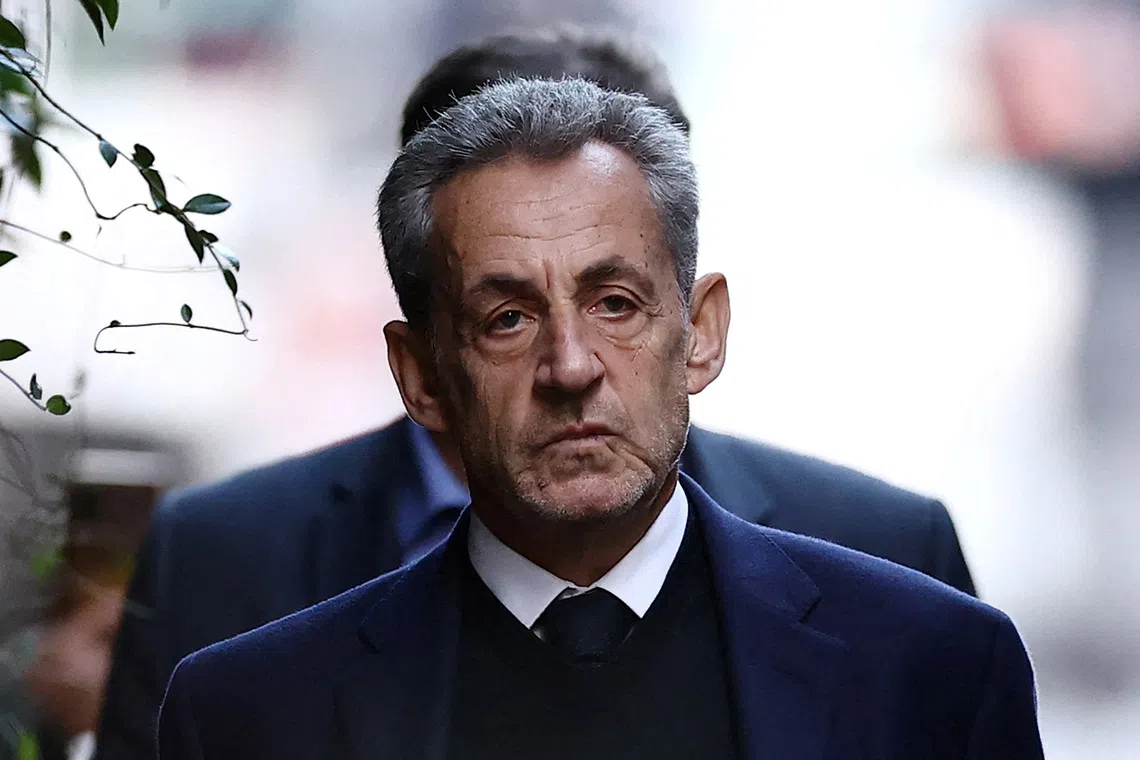France’s highest court upholds Sarkozy conviction in 2012 campaign financing case
Sign up now: Get ST's newsletters delivered to your inbox

Former French president Nicolas Sarkozy was convicted in 2021 and 2024 for illegal campaign financing.
PHOTO: REUTERS
PARIS - France’s highest court on Nov 26 upheld former president Nicolas Sarkozy’s conviction for illegal campaign financing in his failed 2012 re-election bid, his latest legal setback after recently being jailed for nearly a month in another case.
Sarkozy, who served one term as president from 2007 to 2012, was convicted in 2021 and again in 2024 for illegal campaign financing related to the election.
Following an appeal, France’s Cour de Cassation on Nov 26 confirmed the convictions, saying that illegal campaign financing had been established. It upheld Sarkozy’s one-year non-custodial sentence, half of which is suspended.
In a statement, Sarkozy’s lawyers said their client was considering bringing the case to the European Court of Human Rights.
The ruling comes after Sarkozy, 70, was sent to prison on Oct 21
Sarkozy has denied accusations that his party Les Republicains, then known as the UMP, in 2012 spent nearly double the €22.5 million (S$33.8 million) allowed under electoral law on extravagant campaign rallies and then hired a friendly public relations firm to hide the cost.
He has said he was not involved in the logistics of his campaign or in how money was spent in the run-up to the election.
The 2021 ruling said Sarkozy was made aware of the overspending, that he did not act on it, and that it was not necessary for him to approve each individual expense to be responsible. REUTERS


